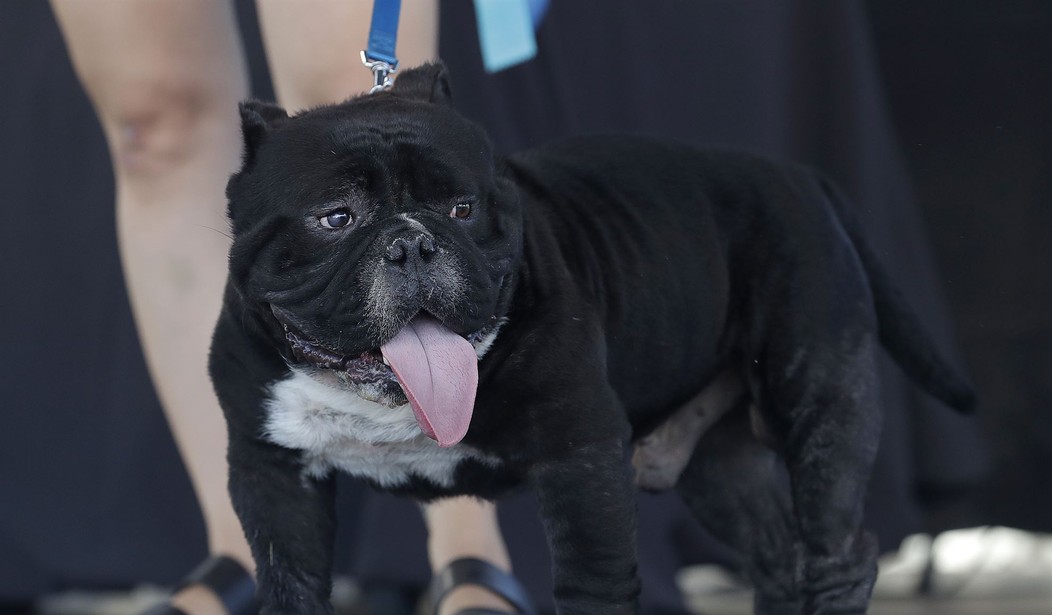Our oldest puppy is named Maddie, nicknamed Miss Maddie Gumdrops. She's a 14-year-old Chinese-crested Powder Puff with a heart murmur and tracheal cough issues that we control with medicine. She's also gone blind, but she is the sweetest thing in the world; she's feisty, and still enjoys her food and hanging around her fur brothers Ian and Puppet. We monitor her health and do regular tests to ensure she's not in any pain or suffering, and so far she's hanging tough. While we will do what is necessary when the time comes, until then, we want her to be happy to be with us, and it seems she is.
All that is to say I cannot understand people who quickly discard animals when their quality of life is not necessarily life-threatening, but challenging in terms of time or money. A sweet, part-time shelter employee feels the same way as I do, and her intervention on behalf of a puppy with a disability is the subject of this week's Feel-Good Friday.
Julie Szilard works part-time at Idaho Falls Animal Shelter, is a full-time student, and runs her own cat rescue. Szilard also recently had surgery to reconstruct her ankle, so it's not like she was looking to add to her already challenging life and schedule. But when Szilard received a call from someone who wanted to euthanize a three-day-old puppy, she intervened.
She instructed the person to bring the puppy in, and they did. Szilard wanted to know if the person minded if she kept the puppy. The owner was only interested in what would be the cheapest option--and one that didn't require they keep the animal. So, at Szilard's insistence, they surrendered the puppy.
"He fit in my hand when I got him, Szilard said. "From the front of his mouth to the back there's a big hole up into his nose."
Szilard named him "Boba" and it appeared he was born with a cleft palate which required surgical intervention. The puppy could survive, but multiple surgeries would be required. According to PetMD, each surgery and the hospitalizations post-surgery can range from $5,000 to $10,000. The puppy also has to be six months old before any corrective surgery can be performed. Since there is a gaping hole between the mouth and the sinus cavity, the puppy's care requires special ways to feed them and give them water.
Szilard was a champ. She brought Boba to work, and tube-fed him every two hours from the day she rescued him, until he was five weeks old. At that point, he had some healing to the open palate, and could now drink water from a bottle made to hydrate hamsters. Szilard also said he is eating normal dog food.
Here's even better news: The Humane Society will cover Boba's corrective surgery, and Szilard plans to keep him. "I imagine that there would have been people out there willing to euthanize him, but he's been a little joy," she gushed.
There are challenges with dogs that have health issues, are born deaf or blind, or are getting old and need extra TLC; but as Szilard expressed, the joy they bring us far outweighs the cost. And as human nature has it, we find ways to invest in the things that truly matter.
When we made the move across the country, we were most concerned about Maddie, but she, along with Ian and Puppet have absolutely thrived here. She has always loved the outdoors, and now she gets to frolic in rain, snow, and smell all the unique smells that come with a new landscape and changing weather. We delight in her enjoyment, however much longer she has to be with us.
East Idaho News honored Szilard for her heart of compassion and work in saving Boba.















Join the conversation as a VIP Member